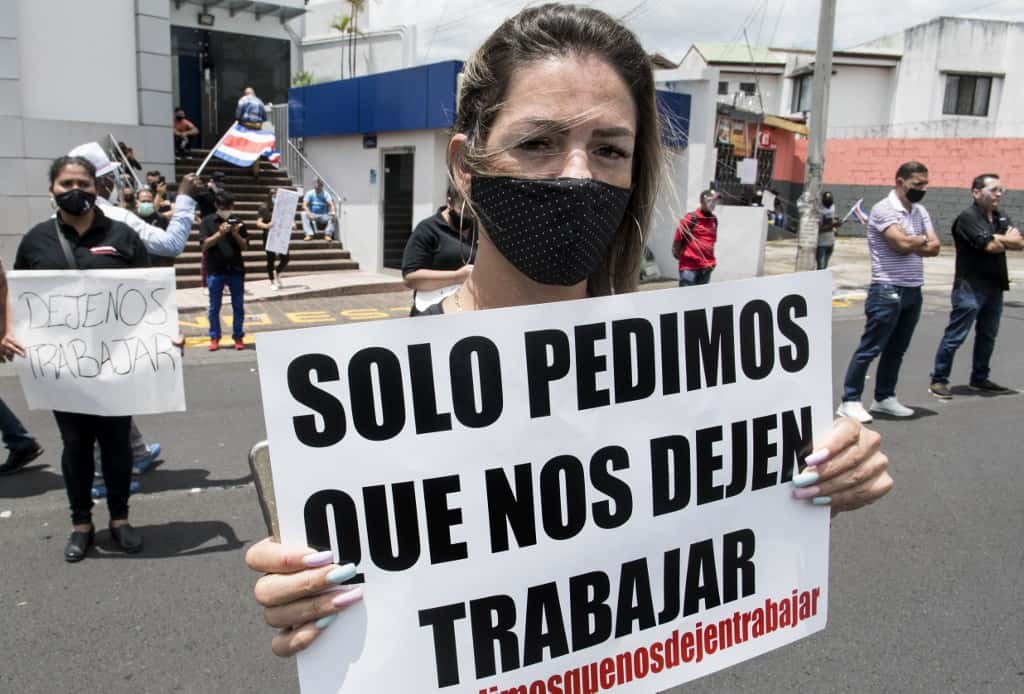Some 34 million people have lost their jobs due to the coronavirus in Latin America and the Caribbean, and the post-pandemic economic reactivation could amplify inequalities in the region, the International Labor Organization (ILO) said Wednesday.
The measures to contain the coronavirus meant that “around 34 million workers lost their jobs in the first half of the year” in the region, the ILO said.
During the first three quarters of this year, the estimated reduction in hours worked was 20.9%, while income from work contracted by 19.3% in the region, the ILO said, almost double the global figures (11.7% and 10.7%, respectively).
Latin America and the Caribbean is “the region most affected worldwide in terms of hours worked and earnings,” stated the ILO in its second report on the impact of the pandemic on the market.
“It is even more problematic” when considering the informally employed, women, young people and those with a lower educational level, who “in general have experienced job losses with the greatest intensity,” added the ILO, which has its regional headquarters in Lima.
The United Nations agency warned that “the path of recovery, which is slowly emerging in the region, could be accompanied by a widening of employment and income gaps between different population groups.”
“We face an unprecedented challenge: that of rebuilding the region’s labor markets, which implies facing structural failures that have worsened with the pandemic,” said ILO regional director Vinícius Pinheiro.
“Preliminary signs of recovery are positive news, but the impact of Covid-19 on work and in companies was enormous, and the road ahead is long,” Pinheiro added in the presentation of the report.
Impact on women and young adults
The greatest impact on employment was felt mostly in the second quarter, and then a gradual recovery began, according to the report, which was prepared with data from nine countries that represent 80% of the regional labor market: Argentina, Brazil, Chile, Colombia, Costa Rica, Mexico, Peru, Paraguay and Uruguay.
“Women more than men, and young people (up to 24 years) more than adults, have suffered, in relative terms, the loss of employment with greater intensity,” said the ILO.
“These trends significantly exacerbate existing employment gaps prior to the pandemic,” it added.
The report stressed that women were over-represented in some of the sectors of activity most affected by this crisis, such as hotel and restaurant services. Therefore, the impact among women has been greater.
In addition, the ILO warned about the “growing difficulties of reconciling paid work with family responsibilities in a context where educational and care services have been profoundly altered.”
The agency stressed that the confinement measures prevented the newly unemployed from dedicating themselves to independent work or self-employment, which was previously a traditional mechanism to overcome the loss of employment.
As wages in Latin America are “relatively low,” the ILO said, those who lost their jobs did not have “sufficient prior financial resources to sustain adequate standards of living.”
The ILO also pointed out that as women represent a majority in health and social services jobs, “they are disproportionately exposed to risks of contagion and/or extended working hours” due to the pandemic.
“In particular, health workers, many of whom are women, are faced with greater professional demands while the demands for family care have increased,” it said.
Another highly affected segment is young people, whose work had a high incidence in hotels, commerce, and construction, “activities strongly affected by the pandemic.”






